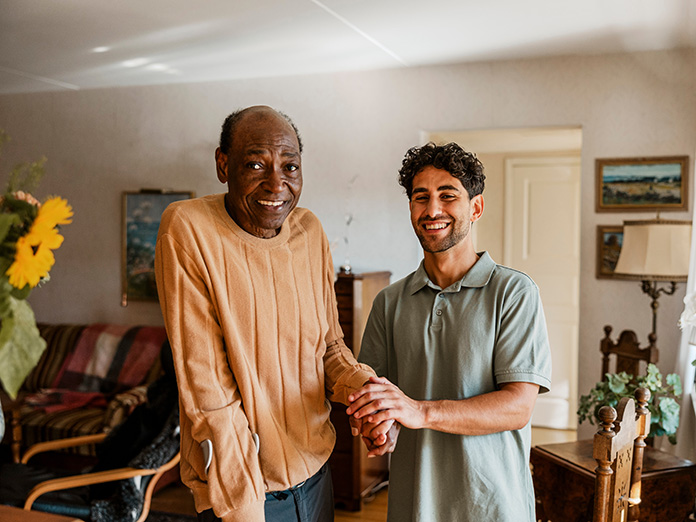Another group or vendor provides the info on the next page. If you don’t want to leave our site, choose the “X” in the upper right corner to close this message. Or choose “Go on to next website” to move forward.
Just contact us. We’re here to help.
What does a case manager do?

What does a case manager do?
Case managers are nurses or social workers. They know about your health conditions and can help you get the care you need. Case managers work with both adults and children. They share info about your health conditions and ways to take care of yourself. If you qualify for a case manager, they can help you:
- Find a primary care provider (PCP)
- Get medical services and supplies
- Find specialists and behavioral health services
- Coordinate doctors’ visits
- Schedule rides in advance to your doctor’s appointments, pharmacy or hospital, if you qualify
- Find community resources and educational materials
- Get the services you need
- Manage care for specialty care populations
To help decide which services best meet your needs, the case manager works with:
You
Your provider
Your representative or guardian (if you have one)
Long-term care (LTC)
Long-term care (LTC)
Are you eligible for LTC? If so, you will be part of the care management program. You will have your own case manager. Your case manager will work with your providers. Together they’ll make a plan to get you the services you need.

Managing complex conditions

Managing complex conditions
Some health issues need more care. If you have a complex condition, a case manager can help you get the treatment you need to feel better. They can help you manage conditions like asthma, cancer, chronic obstructive pulmonary disease (COPD), dementia, diabetes and more.
Pregnancy
Pregnancy
Are you pregnant or planning to start a family? A case manager can help you stay healthy through your pregnancy. If your pregnancy is high risk, they can help you get the special care you need. You’ll get support, including info about preterm labor and birth.

Complete your health risk survey
This will help us decide on what level of care you need. Once you complete the survey, we’ll review your results and talk with you about your care options. You can learn more about the survey.
